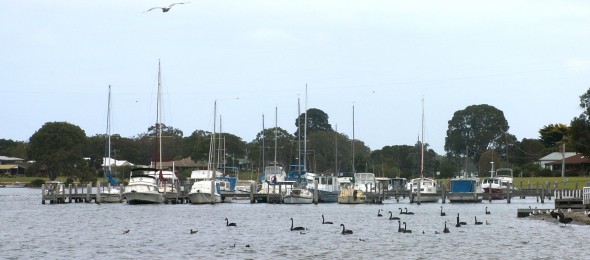The United States Fifth Circuit Court of Appeals has held that an arbitrator did not exceed his powers when he dismissed an insured’s untimely demand for arbitration. In Why Nada Cruz, LLC v. ACE Insurance Co., No. 13-20644 (June 3, 2014), the owner of a boat (“Anderson”) sought compensation for the value of the vessel from his insurance company (“ACE”) after it unexpectedly sunk. A provision included in the boat insurance policy required that all disputes be settled through binding arbitration within one year from the date of any loss. Although ACE denied Anderson’s insurance claim about one month after his property loss, the man did not file a lawsuit against the insurance company until nearly one year after the boat was destroyed.
ACE removed the case from state court to the Southern District of Texas and filed a motion to compel the dispute to arbitration. Approximately six months after Anderson filed his complaint, the federal court granted ACE’s motion and issued an order to abate the proceedings. About eight months later and more than two years after the vessel sunk, Anderson filed a demand for arbitration with the American Arbitration Association. Immediately after Anderson and ACE jointly selected an arbitrator, ACE asked the arbitrator to dismiss the proceeding as untimely. The arbitrator heard evidence regarding the insurer’s request and dismissed Anderson’s claim for failure to adhere to the time limits included in the insurance policy. The arbitrator then declined to reconsider his decision, and the federal district court confirmed the arbitral award. In response, Anderson filed an appeal with the Fifth Circuit Court of Appeals.
On appeal, the boat owner argued that the arbitrator erroneously interpreted the time limits set forth in the insurance policy. The Court of Appeals disagreed, however, and stated the arbitrator did not exceed his powers when he dismissed the proceeding. According to the court,
In rejecting Anderson’s waiver argument, the arbitrator noted that: (1) ACE’s September 20, 2010 letter denying Anderson’s claim specifically referenced the Policy’s arbitration clause and the one-year contractual limitations period; (2) Anderson’s December 9, 2010 and July 7, 2011 letters to ACE acknowledged the Policy’s arbitration requirement; (3) Anderson did not file an arbitration demand until more than 26 months after the loss and 8 months after the district court compelled arbitration; and (4) when Anderson did eventually demand arbitration, he made the demand without assistance from ACE. In light of these findings, and their purpose, the arbitrator did not exceed his powers in considering Anderson’s actions after the one-year deadline for filing an arbitration request had run, or in rejecting Anderson’s argument that this deadline was waived or tolled.
Likewise, the appellate court disagreed with Anderson’s claim that the arbitrator should have entertained the boat owner’s motion for reconsideration by stating,
We have held that “arbitrators enjoy inherent authority to police the arbitration process and fashion appropriate remedies to effectuate this authority.” Hamstein Cumberland Music Grp. v. Williams, 532 F. App’x 538, 543 (5th Cir. 2013). Thus, the arbitrator did not commit misconduct, in violation of §10(a)(3), by declining to give Anderson a second opportunity, after the arbitration award already had issued, to present evidence supporting his opposition to dismissal of the arbitration.
Because the arbitrator acted within his authority when he dismissed the boat owner’s arbitral claim, the Fifth Circuit Court of Appeals affirmed the district court’s decision to confirm the arbitration award and dismiss the man’s lawsuit with prejudice.














